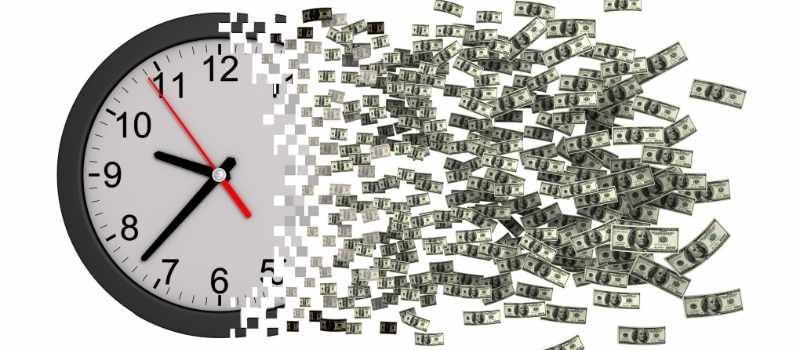
Mythbusting Marketing Tricks That Drain Your Bank Account
Over the years, as I've taken on the role of managing my family's budget while also juggling work and various responsibilities, I've become adept at prioritizing time-saving strategies without mindlessly wasting money and time in the process. Striking a balance between these two priorities can be challenging, but I've learned to lean towards saving time when my budget permits, always being mindful of my spending choices.
With that in mind, I'd like to share some eye-opening money-saving, time-saving myths with you. These tips might seem obvious, but sometimes we overlook them, thinking they don't apply to us. I've come across some truly astonishing money-saving advice that, in reality, ends up costing you more. Let me emphasize that you're not actually saving any money with these practices; you're just spending more.
One of the most significant money-draining tactics I've encountered is the "buy one, get one half off" promotion at grocery stores. This offer may seem enticing, but it's often a deceptive scheme. Grocery stores can inflate the price of a product by more than 100% and then offer the second item at a 50% discount. This way, they still make a 50% profit on the product while increasing their sales volume. So, ask yourself, how are you truly saving money? The reality is that you're not. Instead, you're shelling out more than necessary.
My advice is to steer clear of the grocery store's marketing ploy of "buy one, get one half off." In some cases, purchasing just the item you need may actually cost you less than falling for this offer. Consider waiting until the following week or exploring other stores to make a more cost-effective purchase decision.
The second most exasperating marketing tactic, especially for families on a tight budget or those aiming to save for a family vacation or retirement, is purchasing items in bulk. Take a moment to ponder this question the next time you contemplate buying 36 rolls of paper towels. Do we genuinely need 36 rolls stored away? The answer is likely no, and here's why. When you buy in bulk, whether it's paper towels or any other product, you not only commit a significant amount of money to the purchase but also allocate valuable storage space. Additionally, you inadvertently convey to your family, "We have an abundance of paper towels, feel free to use them liberally."
Let me illustrate this point. Over the years, I've observed that when I buy more in bulk, we tend to use more, resulting in increased spending and zero savings. If you suspect I'm jesting, pay close attention to your own family's habits, and you'll likely see this pattern unfold. In essence, the bottom line is this: avoid buying in bulk, and if you do, you might want to discreetly stash it away so your family believes it's the "last one" and doesn't squander it needlessly.
The third aspect that truly perplexes me is the obsession with energy-saving appliances. I mean, seriously! Are you willing to shell out over 2K just to save perhaps $80 a year? Is it just me, or does this math not quite add up? Let me be clear, I value reducing energy consumption, but this particular approach doesn't seem to make practical sense.
Instead, if you anticipate a genuine need for a new refrigerator (emphasis on "need" rather than "want"), consider keeping an eye out for major clearance sales. For instance, stores like Home Depot and other appliance retailers frequently host clearance events to clear space for new inventory. You see, they have contractual obligations with manufacturers, and when a new product line is introduced, they must remove the older models from the market. So, don't fall for those seemingly enticing special deals or markdowns designed primarily to move inventory. Opt for store clearance sales, where you can find appliances with substantial discounts of 20%, 30%, or even 50%. This way, you can save a significant amount, ranging from $800 to $1200, while still obtaining the new appliance you genuinely require.
The fourth item on my list that I find rather amusing is the over abundance of so-called money-saving "hacks." Let's get real here! Even if these hacks are genuinely effective at saving you money, they often turn out to be major time-consuming endeavors. What I mean by that is you might invest a significant amount of your precious time in these hacks, only to later realize that you may or may not actually follow through with them or ever use them again.
Consider this, are you truly committed to freezing toothpaste to use as a makeshift breath mint? If you find yourself rushing to the freezer right now because you think you need to freshen your breath after reading that, just remember that even the toothpaste label explicitly warns against swallowing it. While there are undoubtedly some valuable money-saving tips out there, I've personally experimented with a few, and I've come to the conclusion that they're not worth the minimal savings they offer or the excessive amount of time required to achieve the desired results. So, count me out!
The fifth aspect on my list that truly boggles my mind is how consistently we all succumb to the temptation of the "would you like to upgrade" and save X-amount of money phenomenon. I've come to the firm belief that this is a clever ploy to coax us into spending more money. Whether it's related to meals, streaming services, smartphones, gadgets, cars, or virtually anything else under the sun, it's designed to entice us into increasing our expenditure.
My advice? Prioritize buying what you genuinely need first. You'd be surprised to find that often, if you exercise a bit of patience when considering an upgrade, you might encounter a better offer down the road for the item you desire. Don't let the allure of immediate savings trick you into making impulsive decisions.
Here are a few items that, over the years, I've found to be rather ineffective when it comes to either saving money or saving time. While I highly value both time and money, I'm content if I can achieve one of the two. However, I'm not one to let cunning marketing tricks dictate my spending habits or succumb to impulsive tactics designed to encourage purchases.
In the upcoming days and weeks, I'll be sharing tips for saving time, saving money, or both, along with a few indulgences that help me maintain my sanity and resist the pressures of external influences on how I choose to live. I encourage you to check back regularly, and I'd greatly appreciate it if you could share your thoughts in the comments or contribute additional tips you've discovered over time. I'll be sure to respond to your comments, and they might even receive recognition in one of my posts. If you decide to share, don't forget to tag @palmcoastlocal on Facebook.




